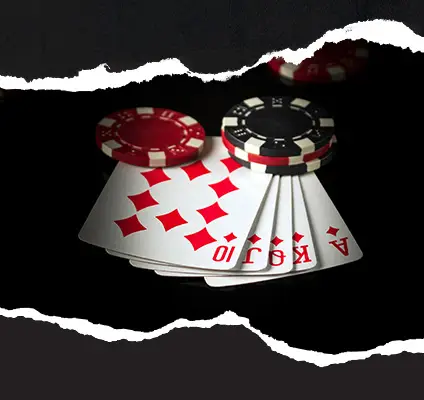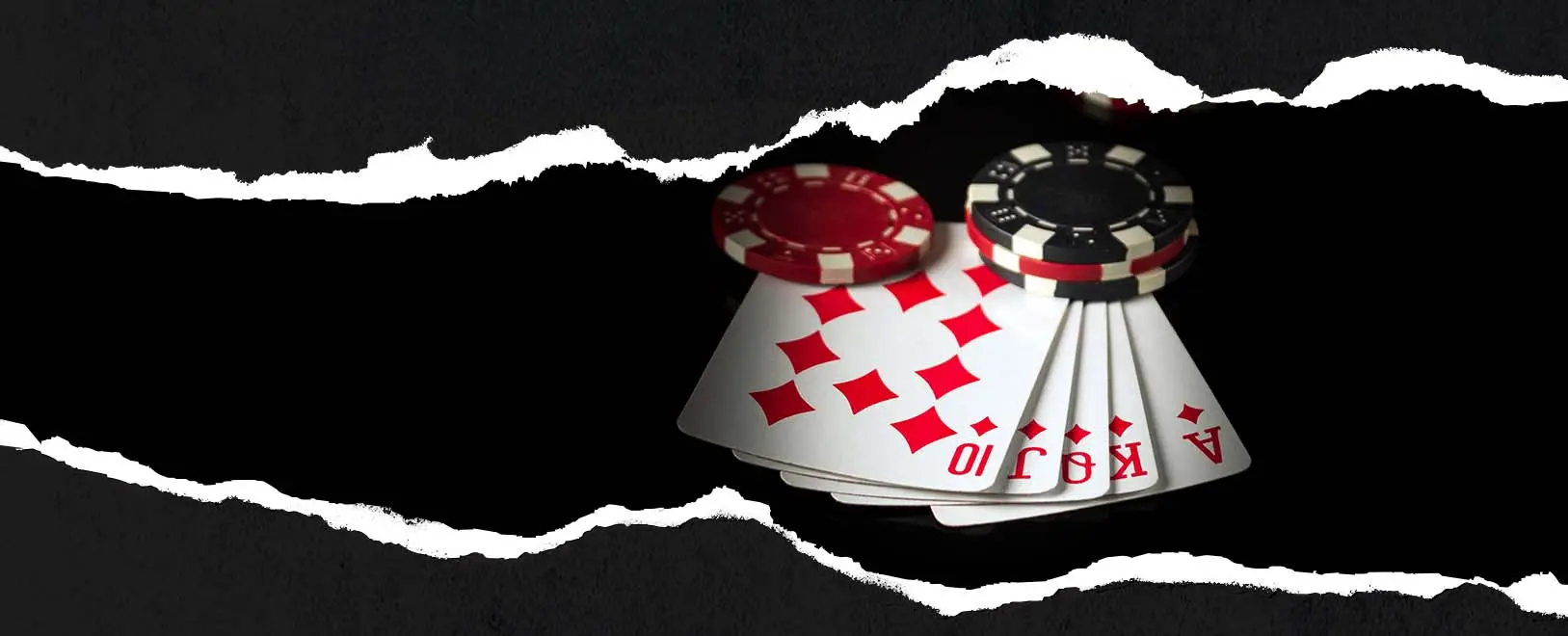Omaha Poker for Real Money
Omaha has emerged as a thrilling alternative to Texas Hold'em in online poker. Bodog's Omaha offerings span a wide range of formats. If you enjoy tournament play, at Bodog we provide both Sit & Go and Multi-Table Tournaments (MTTs) with buy-ins ranging from $1 to $100. These tournaments come in various styles, including knockout formats and progressive structures. We also feature daily guaranteed tournaments.
Cash game enthusiasts aren't left out, with our offering Pot Limit Omaha tables at stakes from micro ($0.02/$0.05) to high ($10/$20). For players seeking rapid-fire action, Bodog's innovative Zone Poker brings the fast-fold concept to Omaha, available at select stake levels.

Omaha Poker Variations at Bodog
At Bodog, we offer a diverse range of Omaha poker variations including Pot Limit Omaha and Pot Limit, No Limit and Fixed Limit Omaha Hi-Lo.
Pot Limit Omaha (PLO)
Pot Limit Omaha (PLO) stands as the most popular Omaha variant at Bodog. In PLO, the betting structure allows you to bet or raise up to the current size of the pot, creating a perfect balance between the excitement of big bets and the control of limited exposure. We offer PLO at shorthanded cash games and full ring tables for tournaments.
Key Features of PLO at Bodog
Betting Structure: The maximum bet is always equal to the current pot size. This rule creates exciting opportunities for large pots while preventing the all-in situations common in No Limit games.
Pot Size Calculation: The pot size for betting purposes includes all bets on the table, plus the amount the active player must call before raising. For example, if the pot is $100 and there's a bet of $25, the maximum raise would be $175 -> $25 (To match the last bet) + $150 (The total pot after matching the bet).
Hand Values: With four hole cards, players can make stronger hands more frequently than in Hold'em, leading to more action and bigger pots.
Variance: The variance and action is much higher than Texas Hold’em variants due to having four cards in hand instead of two.
Stakes: Our PLO games come in a wide range of stakes, from $0.02/$0.05 to $10/$20 for experienced players.
Omaha Hi-Lo
Omaha Hi-Lo, also called Omaha 8 or Better, adds an extra layer of complexity to the game. In this variant, the pot is split between the highest and lowest qualifying hands. Players must use two of their hole cards to make both a high and low hand. At Bodog, we offer Omaha Hi-Lo in various betting structures, allowing players to choose their preferred combination of game type and betting format.
Omaha Tournaments
Bodog's Omaha tournaments bring a new dimension to the popular poker variant, with escalating blinds and the pressure of chip management. Unlike cash games, these events offer a fixed buy-in and the chance to compete for substantial prize pools, creating an atmosphere of urgency and strategic intensity.
At Bodog we offer an array of Omaha Tournament formats, including:
- Freezeouts: One-and-done events where elimination means the end of the road.
- Re-entry tournaments: Offering second chances to those who bust early.
- Knockout events: Adding bounties to the mix for extra excitement.
For those looking to play in larger events without the hefty price tag, Bodog provides satellite tournaments. These qualifiers offer players the chance to win entries into bigger tournaments at a fraction of the direct buy-in cost.
Sit & Go Tournaments
Bodog's Sit & Go (SNG) tournaments provide fast-paced Omaha action in various formats:
- Heads-Up (2 players): For those who enjoy one-on-one poker battles.
- Short-handed (6 players): Offering a balance between full-ring and heads-up play.
- Full ring (9 players): The classic tournament experience.
All Omaha SNGs at Bodog feature Pot Limit betting structures, with buy-ins ranging from a $1 to $100. Currently we offer 9-player tables.
Multi-Table Tournaments (MTTs)
If you are seeking larger fields and bigger prizes, Bodog's Multi-Table Tournaments (MTTs) deliver the goods. These events currently feature two daily tournaments, with additional offerings during promotional periods.
Omaha MTTs are capped at 2,000 players and during specific promotions, this number can be increased up to 5,000.
The MTT lineup includes:
- Knockout Tournaments: Where bounties add an extra layer of strategy.
- Progressive Knockout Tournaments: Featuring increasing bounty values as the tournament progresses.
- Deep Stack Events: Including popular formats like Monster Stack, Crazy8, Lucky7s, and Niners.
- Fast-Structured Tournaments: For those who prefer Turbo and Hyper-Turbo formats.
Buy-ins for Omaha MTTs at Bodog range from $1 to $100.
Daily Tournaments
We currently feature two daily Omaha tournaments, subject to regular changes and expansions during promotional periods:
- 09:05 ET: $200 Guaranteed (SS) - $5 + $0.50 buy-in
- 19:07 ET: $700 Guaranteed (Lucky 7s) - $7 + $0.70 buy-in
Both of these events feature Pot Limit Omaha, with consistent opportunities to test your skills and compete for guaranteed prize pools.
Cash Games
Our Omaha cash games offer a compelling playground for players seeking flexibility and action. These games form the backbone of the Omaha poker ecosystem, providing a platform where you can test your skills across a wide range of stakes and engage in sessions that fit their schedule.
One of the key attractions of Bodog's Omaha cash games is the vast range of stakes available. You can find tables ranging from the micro-stakes of $0.02/$0.05, all the way up to the high-stakes tables of $10/$20.
We offer short-handed tables with each table seating six players. This format creates a more dynamic and action-packed game, as players are forced to play a wider range of hands and make more decisions per hour than at a full ring table. The six-handed format keeps the game fast-paced and exciting.
We adjust the number of available tables based on current demand.
Advantages of Cash Games
The beauty of cash games lies in their flexibility. Unlike tournaments, cash games allow you to:
- Join or leave a table at any time
- Play for as long or as short as you like
- Immediately cash out your winnings
- Rebuy or top up your stack at will
Zone Poker
We have introduced a game-changing format that's taking Omaha to new speeds: Zone Poker.
Zone Poker eliminates one of the most frustrating aspects of traditional online poker: waiting for the next hand after folding. The concept behind it is to maximize playing time and minimize downtime, making it ideal for those who want to see more hands and make more decisions per hour.
By playing two Zone tables simultaneously, you can see approximately 500 hands per hour.
At Bodog we have tailored our Zone Poker offering to Omaha players, focusing on short-handed action with six-player tables. This format maintains the dynamic, action-packed nature of Omaha while accelerating the pace of play.
Currently, at Bodog we offer Zone Poker stakes from $0.10/$0.25 to $0.75/$1.50.
Omaha Rules
Omaha poker, played with a standard 52-card deck, shares similarities with other poker variants but has unique rules that set it apart. The key distinction is that players must use exactly two of their four hole cards and three community cards to form their best five-card hand.
The game proceeds through four betting rounds: pre-flop, flop, turn, and river, with players having the option to fold, call, or raise during each round. In the popular Pot Limit Omaha variant, the maximum bet is restricted to the current size of the pot.
Hand rankings in Omaha follow the standard poker hierarchy, from Royal Flush down to High Card, but the four-card starting hand introduces interesting dynamics. Strong starting hands typically feature a mix of high cards, pairs, and suited combinations, with double-suited hands being particularly valuable due to their flush potential.
The gameplay unfolds in phases, beginning with the deal of hole cards and progressing through the reveal of community cards, culminating in a showdown if more than one player remains. The player with the best five-card hand wins the pot, with splits occurring in case of ties or when playing Omaha Hi-Lo variants.
Differences Between Omaha Poker, Texas Hold'em and Omaha Hi-Lo
While Omaha and Texas Hold'em share similarities as community card games, they have distinct characteristics that set them apart. The most notable difference lies in the number of hole cards dealt to each player: Omaha players receive four, while Texas Hold'em players get two. This fundamental difference significantly impacts gameplay and strategy.
In Omaha, players must use exactly two of their hole cards combined with three community cards to form their hand. Hold'em offers more flexibility, allowing players to use any combination of hole and community cards. This rule variation leads to more complex hand possibilities in Omaha, often resulting in stronger hands at showdown.
The betting structure also differs between the two games. While both offer No Limit and Pot Limit variations, Pot Limit Omaha (PLO) is the most popular form of Omaha, whereas No Limit is preferred in Hold'em. This difference affects betting strategies and pot sizes.
Omaha's gameplay tends to be more calculation-intensive due to the increased number of potential hands. Players must consider more drawing possibilities and focus on making the nuts (best possible hand) more frequently than in Hold'em. Conversely, Hold'em often emphasizes reading opponents and bluffing.
On the other hand, Omaha Hi-Lo introduces a twist to the traditional Omaha format by including a split-pot mechanic. In this variant, each hand potentially results in two separate winners: one for the highest-ranking poker hand and another for the lowest-qualifying hand. To be eligible for the low pot, a player must form a five-card hand with no card higher than an 8, with the Ace-to-Five straight (known as the "wheel") representing the best possible low hand. Players can aim to win either half of the pot or, ideally, "scoop" the entire pot by winning both high and low. In cases where no player qualifies for a low hand, the entire pot is awarded to the highest hand.
For more information, check our dedicated page about Poker strategies.
